Find Help
More Items From Ergsy search
-
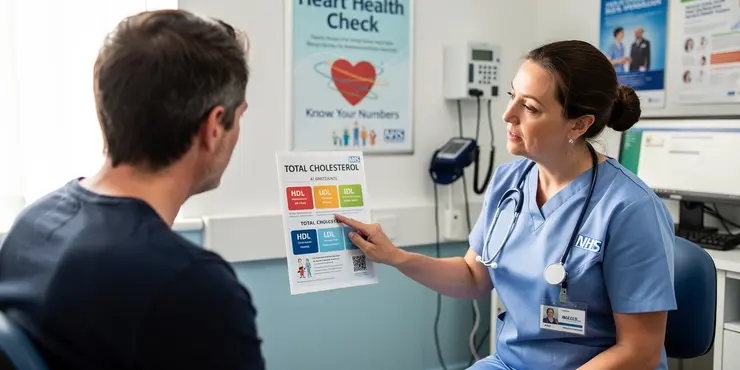
NHS Health check - Cholesterol
Relevance: 100%
-
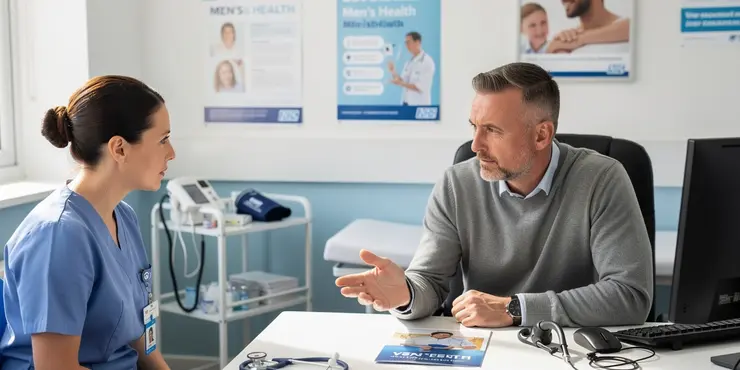
Ask for a prostate specific antigen (PSA) test along with your annual cholesterol check.
Relevance: 58%
-
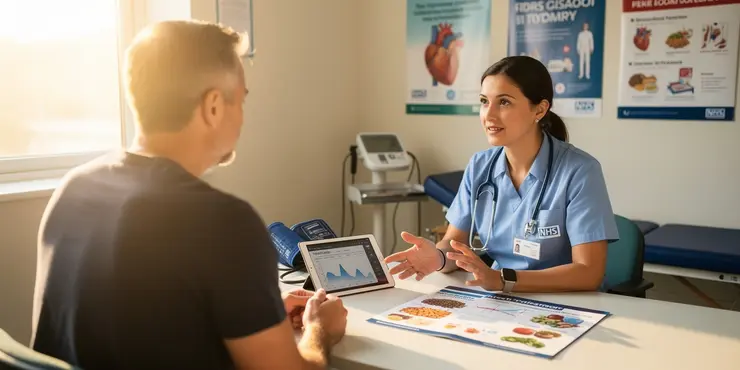
Can fiber help lower cholesterol levels?
Relevance: 52%
-
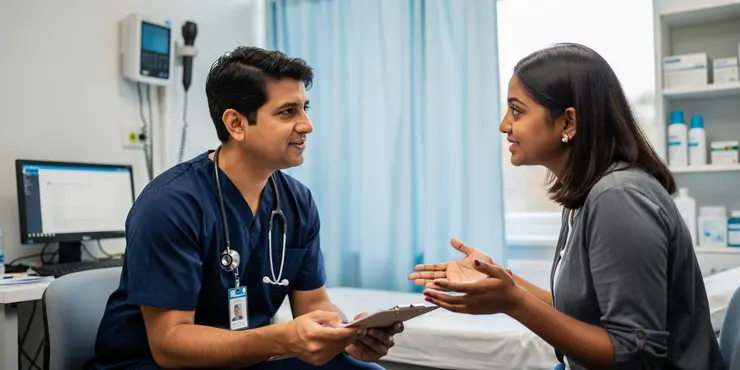
Harshi’s learning disability annual health check and health action plan
Relevance: 52%
-
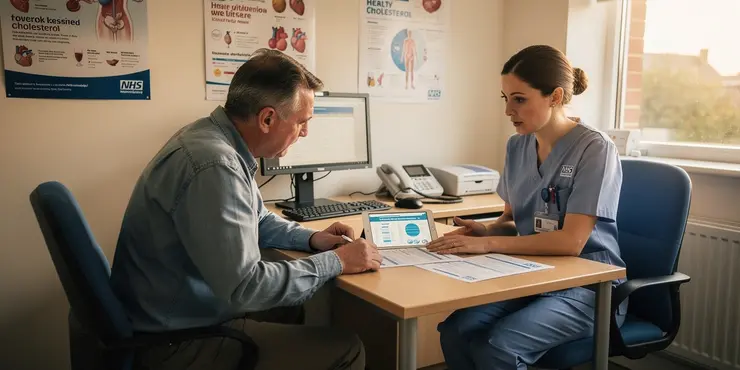
How often should cholesterol levels be tested when taking heart disease medication?
Relevance: 50%
-
Are there specific fats that support heart health?
Relevance: 40%
-
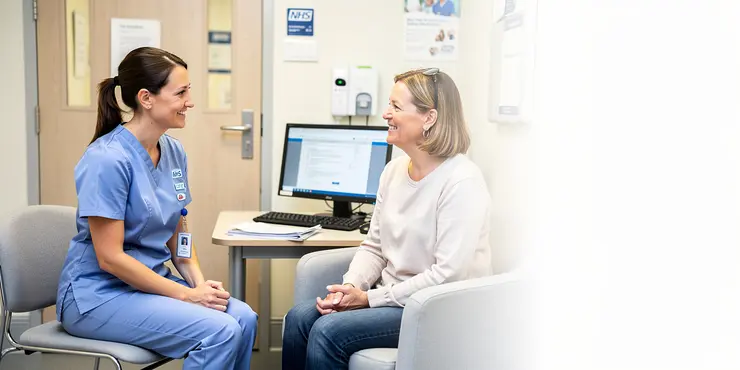
Health Screenings You Should Know About
Relevance: 40%
-
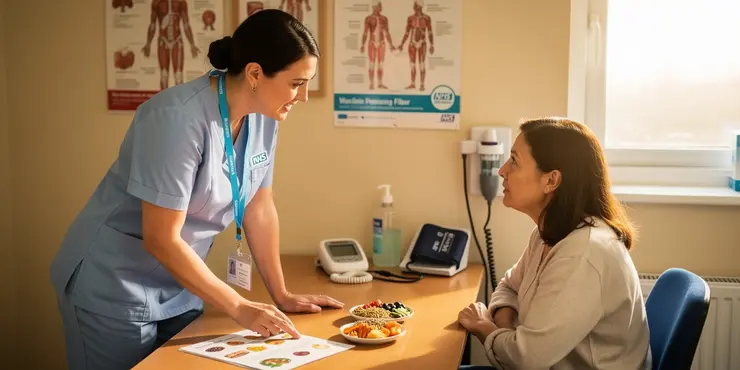
Why is fiber important for health?
Relevance: 38%
-

Is fibre good for health?
Relevance: 37%
-

Why is fiber important for health?
Relevance: 35%
-

Is it necessary to check on neighbors during a heatwave?
Relevance: 31%
-
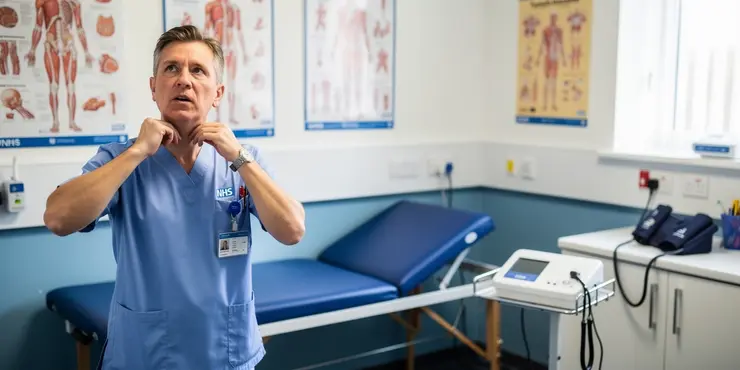
How to check your lymph nodes
Relevance: 30%
-
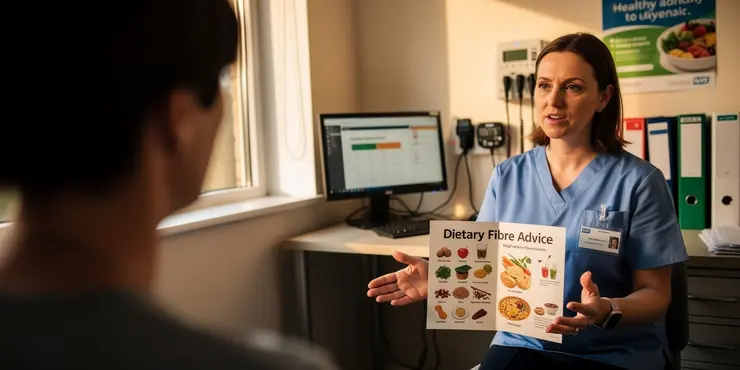
Why is fiber important for gut health and aging?
Relevance: 30%
-
Are there any health benefits to consuming seed oils like sunflower oil?
Relevance: 30%
-
How do mixed exercises impact cardiovascular health?
Relevance: 29%
-
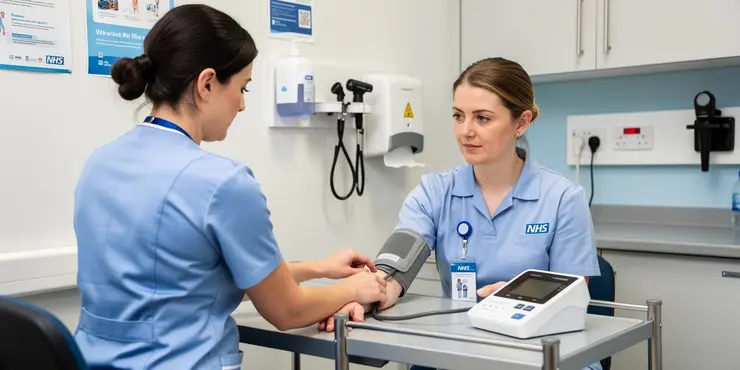
How often should I check my blood pressure?
Relevance: 29%
-
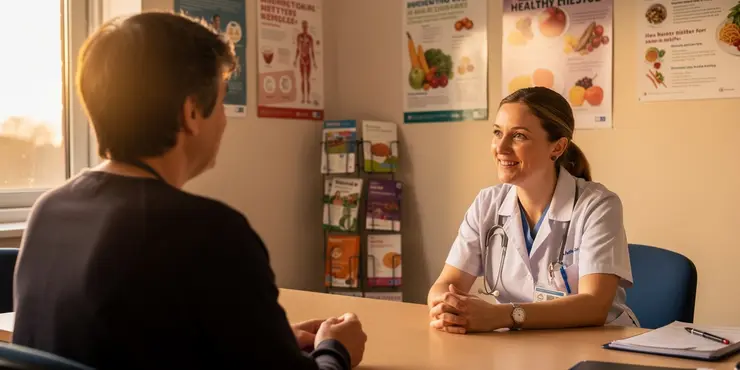
How does junk food affect health?
Relevance: 29%
-
Is there a national database for checking waiting times for surgeries?
Relevance: 29%
-
Can I check the waiting time for a specific procedure online?
Relevance: 29%
-
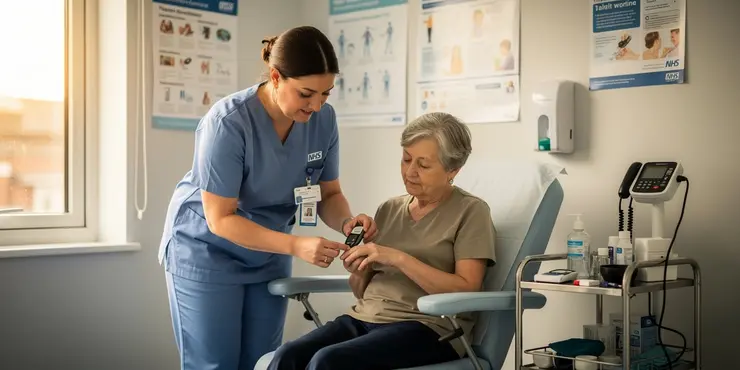
How often should I check my blood glucose levels?
Relevance: 28%
-

Where can I check the status of my application?
Relevance: 28%
-
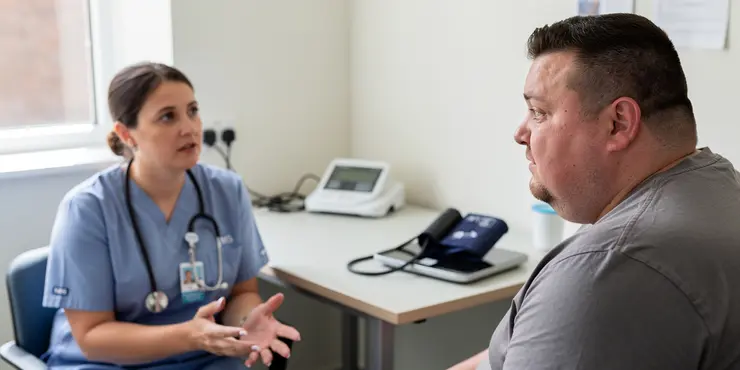
What health risks are associated with obesity?
Relevance: 27%
-

Are there border checks for UK travelers entering France or Spain by car?
Relevance: 27%
-
Are there apps available to check operation waiting times?
Relevance: 27%
-
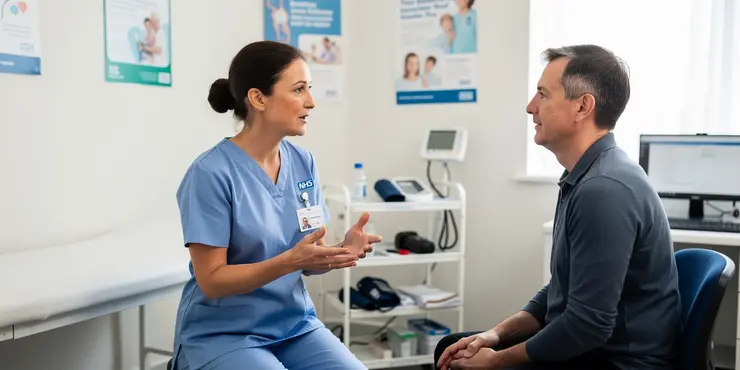
What information do I need to provide to check for breaches?
Relevance: 27%
-
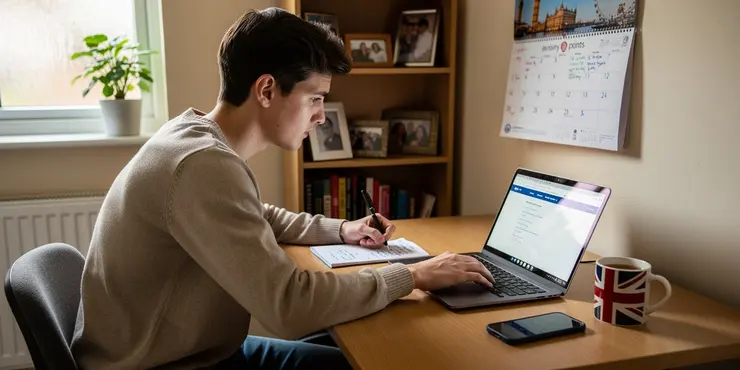
How can I check my penalty points status?
Relevance: 27%
-
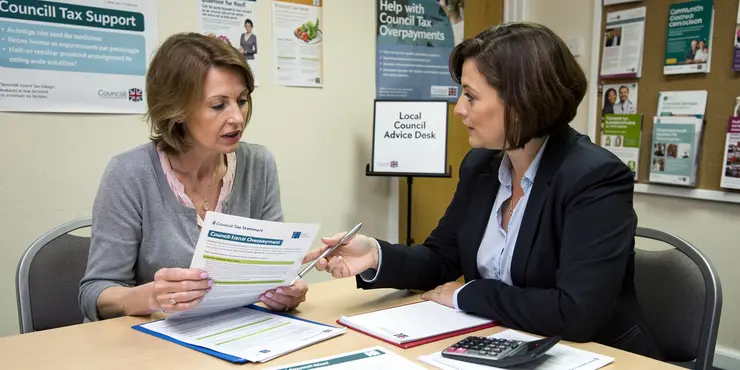
Will my council send a refund check if I overpay?
Relevance: 26%
-
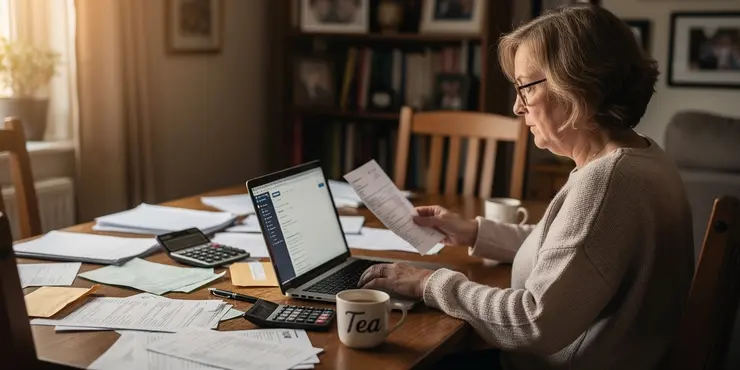
Should I switch my savings account, checking account, or both?
Relevance: 26%
-
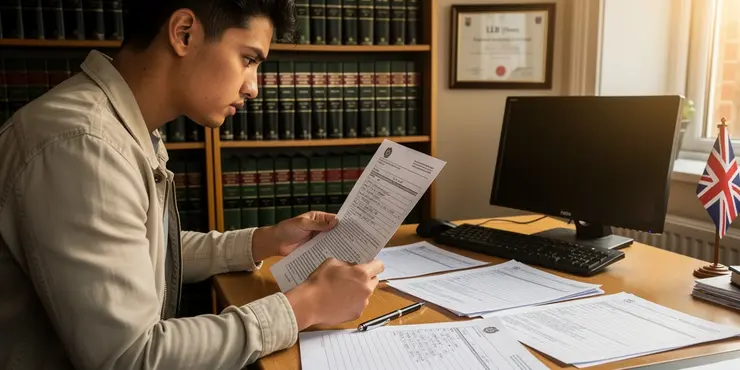
Will accessing my police records show up in background checks?
Relevance: 26%
-
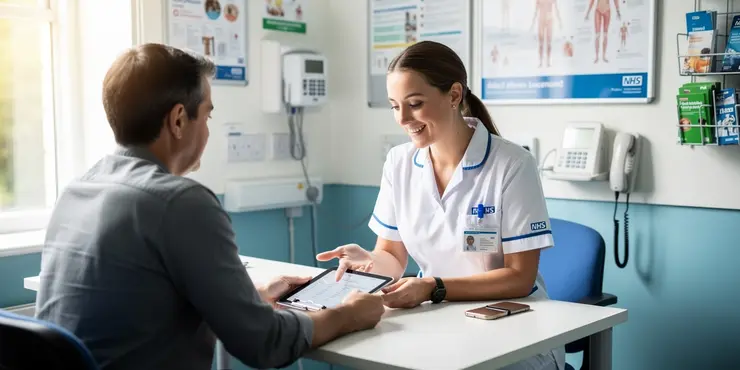
How can I check my immigration status online?
Relevance: 26%
-

Can I check the status of my immigration case by phone?
Relevance: 26%
-
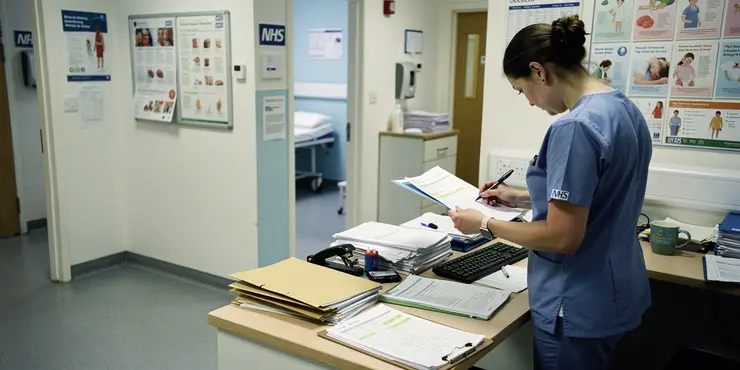
What information do I need to check for overpayments?
Relevance: 26%
-

Should I switch my savings account, checking account, or both?
Relevance: 26%
-

What details are needed to check for overpayments through my council?
Relevance: 25%
-

How can I check the status of my online tax return?
Relevance: 25%
-
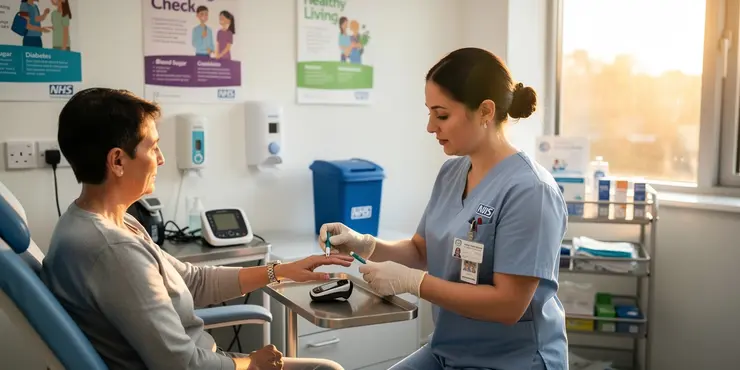
Diabetes: How to check your blood glucose level | NHS
Relevance: 25%
-
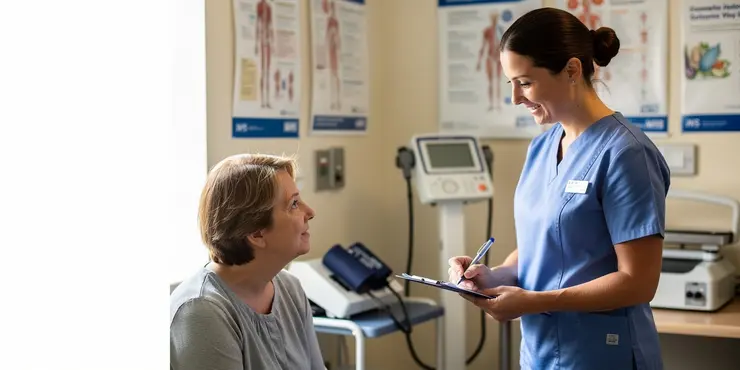
What information do I need to check my immigration status online?
Relevance: 25%
-
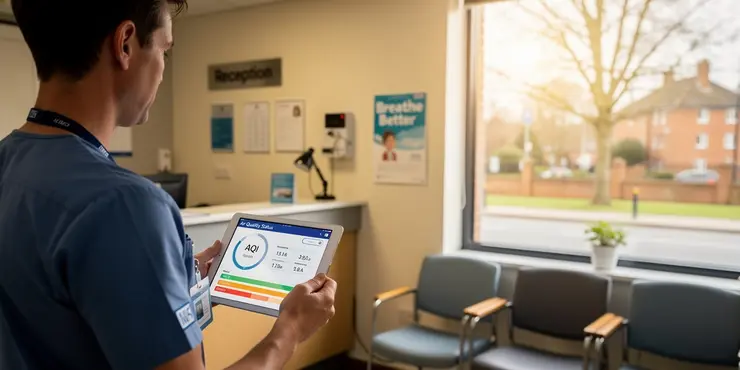
How do I check current air quality levels in my local area?
Relevance: 24%
-
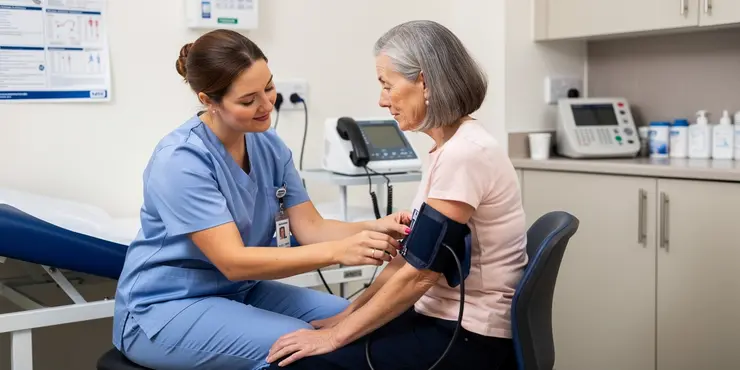
Is it safe to use public Wi-Fi to check my email?
Relevance: 24%
-
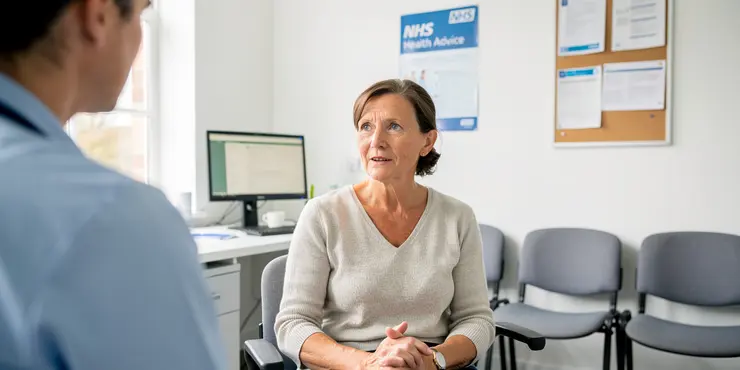
Is health linked to aging?
Relevance: 24%
NHS Health Check - Step 7: Cholesterol
Understanding Cholesterol Levels
Cholesterol is a fatty substance found in your blood. While it is necessary for building healthy cells, having high levels of cholesterol can increase your risk of heart disease. There are two types of cholesterol – Low-Density Lipoprotein (LDL) often termed as "bad" cholesterol, and High-Density Lipoprotein (HDL), known as "good" cholesterol. Monitoring these levels is crucial as part of your NHS Health Check, which is available to adults in the UK aged 40-74.
Importance of Cholesterol Testing
The NHS Health Check includes a cholesterol test because elevated levels can lead to the buildup of plaques in your arteries, a condition known as atherosclerosis. This condition can significantly increase your risk of cardiovascular diseases such as heart attacks and strokes. Early detection through a cholesterol test allows for timely intervention and management, which can prevent these potentially life-threatening conditions.
How Cholesterol is Measured
During the NHS Health Check, a blood sample will be taken either via a finger prick test or by drawing blood from your arm. This sample measures the total cholesterol level, HDL, LDL, and triglycerides – another type of fat in the blood. The results usually take a few days but can provide a comprehensive overview of your cardiovascular health.
Interpreting Your Cholesterol Results
Once you receive your results, the healthcare provider will explain what they mean. Generally, a total cholesterol level of 5 mmol/L or less is considered healthy, while a reading above 5 mmol/L may necessitate further lifestyle changes or medical intervention. The optimal HDL level should be 1 mmol/L or higher for men, and 1.2 mmol/L or higher for women. LDL levels should ideally be below 3 mmol/L.
Managing High Cholesterol
If your test results indicate high cholesterol, your healthcare provider will likely recommend lifestyle changes such as a balanced diet rich in fruits, vegetables, and whole grains, along with regular physical activity. In some cases, medication such as statins may be prescribed to help lower cholesterol levels. It's crucial to follow up with your healthcare provider to monitor your cholesterol and make necessary adjustments.
Future Health and Regular Checks
Regular NHS Health Checks every five years can help keep track of your cholesterol levels and overall heart health. This proactive approach, combined with a healthy lifestyle, can significantly reduce your risk of cardiovascular complications. Remember, maintaining optimal cholesterol levels is an ongoing effort that plays a vital role in your long-term health and wellbeing.
NHS Health Check - Step 7: Cholesterol
Understanding Cholesterol Levels
Cholesterol is a type of fat in your blood. Your body needs it to build healthy cells. But too much cholesterol can hurt your heart. There are two kinds of cholesterol. One is called LDL, or "bad" cholesterol. The other is HDL, or "good" cholesterol. It is important to check these levels during your NHS Health Check. This check is for adults in the UK aged 40 to 74.
Importance of Cholesterol Testing
The NHS Health Check tests your cholesterol. High cholesterol can clog your arteries. This is called atherosclerosis. It can cause heart attacks or strokes. Checking your cholesterol early helps you and your doctor catch problems. Then you can work on fixing them before they get dangerous.
How Cholesterol is Measured
At the NHS Health Check, you will have a blood test. This can be a quick finger prick or blood drawn from your arm. The test measures total cholesterol, HDL, LDL, and something called triglycerides (another fat in your blood). The results take a few days to come back. They help you understand your heart health.
Interpreting Your Cholesterol Results
Your healthcare provider will explain your test results. A total cholesterol level of 5 mmol/L or less is healthy. If it's more than 5 mmol/L, you might need to change your lifestyle or take medicine. For HDL (good cholesterol), men should have 1 mmol/L or more, and women should have 1.2 mmol/L or more. LDL (bad cholesterol) should be less than 3 mmol/L.
Managing High Cholesterol
If your cholesterol is high, your doctor will suggest changes. Eat a balanced diet with fruits, vegetables, and whole grains. Exercise regularly. Sometimes, you might need medicine called statins to lower your cholesterol. Keep seeing your doctor to check your cholesterol and adjust your plan.
Future Health and Regular Checks
Get an NHS Health Check every five years. This helps you keep track of your cholesterol and heart health. Living healthy and getting regular checks can lower your chance of heart problems. Remember, keeping your cholesterol levels good is important for staying healthy in the long run.
Frequently Asked Questions
What is cholesterol?
Cholesterol is a fatty substance found in your blood. It is essential for building healthy cells, but high levels can increase your risk of heart disease.
What are the different types of cholesterol?
There are two main types of cholesterol: low-density lipoprotein (LDL), often referred to as 'bad' cholesterol, and high-density lipoprotein (HDL), known as 'good' cholesterol.
Why is high cholesterol a problem?
High cholesterol can lead to the build-up of fatty deposits in your blood vessels, making it harder for blood to flow through your arteries, which increases the risk of heart attack and stroke.
How can I get my cholesterol levels checked?
You can have your cholesterol levels checked with a simple blood test from your GP or during an NHS Health Check.
What causes high cholesterol?
High cholesterol can be caused by a number of factors, including a diet high in saturated fat, lack of exercise, being overweight, smoking, and excessive alcohol consumption.
What are the symptoms of high cholesterol?
High cholesterol usually has no symptoms and many people do not know they have it until they have a blood test.
Can high cholesterol be inherited?
Yes, high cholesterol can run in families. This condition is known as familial hypercholesterolaemia.
How can I lower my cholesterol?
To lower cholesterol, you can make lifestyle changes such as eating a healthier diet, exercising regularly, quitting smoking, and reducing alcohol intake.
Are there medications to lower cholesterol?
Yes, if lifestyle changes are not enough, your doctor may prescribe statins or other medications to help lower your cholesterol.
What foods should I eat to lower my cholesterol?
Eating foods high in unsaturated fats, such as oily fish, nuts, seeds, and vegetable oils, as well as fruits, vegetables, and whole grains, can help lower cholesterol.
What foods should I avoid to reduce high cholesterol levels?
You should limit foods high in saturated fats and trans fats, such as fatty cuts of meat, full-fat dairy products, processed foods, and fried foods.
How often should I have my cholesterol checked?
If you are at risk of heart disease or have high cholesterol, you may need to have it checked more regularly, typically every 1 to 3 years.
Can exercise help lower cholesterol?
Yes, regular physical activity can help raise HDL (good) cholesterol and lower LDL (bad) cholesterol and triglycerides.
Is there a connection between cholesterol and heart disease?
Yes, high levels of LDL cholesterol can lead to the build-up of plaques in your arteries, which increases your risk of heart disease and stroke.
Can young people have high cholesterol?
Yes, high cholesterol can affect people of all ages, including children and young adults, particularly if they have an unhealthy diet or a family history of high cholesterol.
What is cholesterol?
Cholesterol is a kind of fat inside your body. Your body needs some cholesterol to work well. But too much cholesterol can be bad for your heart.
If you want to learn more about cholesterol, ask a doctor or a nurse. They can help you understand.
To make reading easier, you can use simple tools like audiobooks or ask someone to read with you.
Cholesterol is a type of fat in your blood. Your body needs it to make healthy cells. But if you have too much cholesterol, it can make you more likely to have heart disease.
What kinds of cholesterol are there?
Cholesterol is something in your blood. It can be good or bad for you.
There are two main kinds of cholesterol:
- Good cholesterol (HDL): This kind helps your heart stay healthy.
- Bad cholesterol (LDL): This kind can cause trouble for your heart.
You can use pictures or videos to learn more about cholesterol. Asking a grown-up for help can also be useful. They can explain things in a way that is easy to understand.
There are two main kinds of cholesterol:
1. Low-density lipoprotein (LDL). This is often called 'bad' cholesterol.
2. High-density lipoprotein (HDL). This is known as 'good' cholesterol.
Here are some tips to help understand:
- Use pictures to help remember which cholesterol is good or bad.
- Ask someone to explain it in a simple way, like a teacher or parent.
Why is having high cholesterol bad?
Cholesterol is a type of fat in your blood. Your body needs some cholesterol to work well. But too much cholesterol is not good.
High cholesterol can make your blood vessels narrow. This makes it hard for your blood to flow. It can cause health problems, like heart attacks or strokes.
To help with understanding, you can:
- Ask your doctor questions if you are unsure.
- Use pictures to learn about cholesterol and health.
- Watch videos or listen to podcasts about staying healthy.
High cholesterol means there's too much fat in your blood. This fat can block your blood vessels. When blood can't move easily, it can lead to heart attacks or strokes.
How can I check my cholesterol levels?
Cholesterol is a type of fat in your blood. It's important to know your cholesterol levels.
Here are some easy steps to get your cholesterol checked:
- Visit a doctor or a nurse .
- They will take a small blood sample.
- The blood sample will be tested. This tells how much cholesterol is in your blood.
- The doctor or nurse will explain the results to you.
You can ask someone for help if you find it difficult. Using pictures or talking through the steps with a friend can make it easier.
You can get a blood test to check your cholesterol levels. This can be done by your doctor or during a health check with the NHS.
Why is cholesterol high?
Cholesterol can be high because of:
- Eating too much food with fat, like chips and burgers.
- Not moving around much, like sitting all day.
- Being overweight.
- Smoking cigarettes.
- Some people may get it from their family.
If reading is hard, you can:
- Ask someone to read with you.
- Use pictures to understand better.
- Listen to a recording of this information.
High cholesterol can happen because of different things. Eating too much fatty food, not exercising, being too heavy, smoking cigarettes, and drinking too much alcohol can all cause it.
What are the signs of high cholesterol?
High cholesterol can be hard to notice because it doesn't make you feel sick. But it can cause problems over time. Here are some signs to watch for:
- Pain in the chest (Sometimes called angina)
- Feeling very tired
- Shortness of breath
- Tingling or pain in the feet or hands
It's important to visit a doctor for check-ups. They can do a test to see if your cholesterol is high.
If you need help reading, you can ask someone to read it with you. You can also use an app that reads text out loud.
High cholesterol means having too much fat in your blood. It does not make you feel sick and you can't tell if you have it. You need a blood test to find out.
Can you get high cholesterol from your parents?
Yes, you can. Some people have high cholesterol because of their genes. This means it can run in the family.
If your parents or grandparents have high cholesterol, you might have it too.
If you are worried, visit a doctor. They can do a blood test to check your cholesterol levels.
Eat healthy foods and exercise to help keep your heart healthy.
Your doctor or nurse can give you more advice on staying healthy.
Yes, high cholesterol can run in families. This means it can be passed down from parents to children. This is called familial hypercholesterolemia.
How can I make my cholesterol lower?
Cholesterol is something in your blood. Too much can be bad. Here are some simple ways to make it lower:
- Eat healthy foods like fruits and vegetables.
- Try to be active, like playing or walking more.
- Don't eat too many cakes, cookies, or fried foods.
- Ask a grown-up or doctor for help and advice.
Using pictures or simple apps can help you remember these tips!
To make your cholesterol lower, you can try these things:
- Eat healthy food. Try eating more fruits and vegetables.
- Exercise often. You can walk, run, or play sports.
- Stop smoking. Smoking is bad for your heart.
- Drink less alcohol. Try drinking less or stopping.
Can medicine help lower cholesterol?
Yes, there is medicine that can help lower cholesterol.
Cholesterol is a fat in your blood. Too much cholesterol can be bad for your heart.
If you have high cholesterol, your doctor might suggest taking medicine to help.
Remember to also eat healthy food and do exercise. These things help lower cholesterol too.
You can talk to your doctor or a nurse if you have questions. They can help you understand what to do.
Yes, if changing the way you live is not enough, your doctor might give you statins or other medicines to help lower your cholesterol.
What foods can help me lower my cholesterol?
Eating foods that are good for you can help lower cholesterol. Try eating fish with oil, nuts, seeds, and vegetable oils. Also, eat lots of fruits, vegetables, and whole grains.
What foods should I not eat to lower high cholesterol?
If you have high cholesterol, eating the right foods can help you feel better. Here are some foods to stay away from:
- Fatty meats: Like bacon and sausages. Try chicken or fish instead.
- Butter and cream: Use olive oil or sunflower oil when cooking.
- Cakes and pastries: Eat fruits or nuts for a sweet treat.
- Fried foods: It's better to bake or grill your food.
Helpful tips:
- Use pictures: Look for charts with pictures of healthy and unhealthy foods.
- Get support: Talk to a family member or friend about your food choices.
- Use apps: There are apps that help you track what you eat.
Always talk to a doctor or a nurse if you need more help with choosing foods. They can give you good advice.
Try not to eat too much food with lots of bad fats. These bad fats are called saturated fats and trans fats. They are in foods like fatty meat, whole milk, cheese, foods from the factory, and fried foods.
Here are some tips to help:
- Eat lean meat like chicken or turkey.
- Pick low-fat milk and cheese.
- Try to cook your own meals at home.
- Bake or grill food instead of frying it.
How often should I get my cholesterol checked?
You should check your cholesterol to keep your heart healthy.
Most adults need to check their cholesterol every 4 to 6 years.
But some people might need to check it more often.
If you do not understand, you can:
- Ask your doctor or nurse.
- Use pictures to help explain.
- Have someone read it to you.
If you might get heart disease or have high cholesterol, you should get it checked more often. This could be every 1 to 3 years.
Can exercise help lower cholesterol?
Exercise is moving your body, like running or playing. It can help make your cholesterol levels better.
Cholesterol is a thing in your blood. Too much cholesterol can be bad for your heart.
By doing exercise, you can make the cholesterol levels in your blood lower.
Try to exercise a little bit every day. You can walk, ride a bike, or play sports.
If you find reading hard, you might use a tool like a speech-to-text app to listen to this information.
Yes, doing exercise often can help your body. It can make your good cholesterol higher and your bad cholesterol and fats lower.
Is there a link between cholesterol and heart disease?
Cholesterol is a kind of fat in our blood. Our bodies need some cholesterol, but too much can be bad.
Heart disease is when the heart doesn’t work well.
Having too much cholesterol can lead to heart disease because it can block the blood flow to the heart.
To take care of your heart, you can eat healthy foods, exercise, and listen to your doctor.
Tools like picture charts or talking with someone can help you learn more.
Yes, having a lot of LDL cholesterol in your blood can make plaques. Plaques are like sticky bits that block your blood tubes called arteries. This makes it easier for you to get heart problems or a stroke.
Using a picture can help you understand how blockages look. Listening to someone read this out loud might also be helpful.
Can kids and teens have high cholesterol?
Yes, kids and teens can have high cholesterol. Cholesterol is a type of fat in your blood. When you have too much, it can be bad for your health. Eating healthy food and exercising can help keep your cholesterol low.
If you want to understand more, talk to a doctor or a nurse. They can use easy words to explain cholesterol to you.
Yes, anyone can have high cholesterol. This includes children and young people. It can happen if they eat lots of unhealthy food or if their family members have high cholesterol too.
Tools like picture books and using simple words can help understand better. Talking with a doctor can also be helpful.
Useful Links
This website offers general information and is not a substitute for professional advice.
Always seek guidance from qualified professionals.
If you have any medical concerns or need urgent help, contact a healthcare professional or emergency services immediately.
Some of this content was generated with AI assistance. We’ve done our best to keep it accurate, helpful, and human-friendly.
- Ergsy carfully checks the information in the videos we provide here.
- Videos shown by Youtube after a video has completed, have NOT been reviewed by ERGSY.
- To view, click the arrow in centre of video.
- Most of the videos you find here will have subtitles and/or closed captions available.
- You may need to turn these on, and choose your preferred language.
- Go to the video you'd like to watch.
- If closed captions (CC) are available, settings will be visible on the bottom right of the video player.
- To turn on Captions, click settings .
- To turn off Captions, click settings again.
More Items From Ergsy search
-

NHS Health check - Cholesterol
Relevance: 100%
-

Ask for a prostate specific antigen (PSA) test along with your annual cholesterol check.
Relevance: 58%
-

Can fiber help lower cholesterol levels?
Relevance: 52%
-

Harshi’s learning disability annual health check and health action plan
Relevance: 52%
-

How often should cholesterol levels be tested when taking heart disease medication?
Relevance: 50%
-
Are there specific fats that support heart health?
Relevance: 40%
-

Health Screenings You Should Know About
Relevance: 40%
-

Why is fiber important for health?
Relevance: 38%
-

Is fibre good for health?
Relevance: 37%
-

Why is fiber important for health?
Relevance: 35%
-

Is it necessary to check on neighbors during a heatwave?
Relevance: 31%
-

How to check your lymph nodes
Relevance: 30%
-

Why is fiber important for gut health and aging?
Relevance: 30%
-
Are there any health benefits to consuming seed oils like sunflower oil?
Relevance: 30%
-
How do mixed exercises impact cardiovascular health?
Relevance: 29%
-

How often should I check my blood pressure?
Relevance: 29%
-

How does junk food affect health?
Relevance: 29%
-
Is there a national database for checking waiting times for surgeries?
Relevance: 29%
-
Can I check the waiting time for a specific procedure online?
Relevance: 29%
-

How often should I check my blood glucose levels?
Relevance: 28%
-

Where can I check the status of my application?
Relevance: 28%
-

What health risks are associated with obesity?
Relevance: 27%
-

Are there border checks for UK travelers entering France or Spain by car?
Relevance: 27%
-
Are there apps available to check operation waiting times?
Relevance: 27%
-

What information do I need to provide to check for breaches?
Relevance: 27%
-

How can I check my penalty points status?
Relevance: 27%
-

Will my council send a refund check if I overpay?
Relevance: 26%
-

Should I switch my savings account, checking account, or both?
Relevance: 26%
-

Will accessing my police records show up in background checks?
Relevance: 26%
-

How can I check my immigration status online?
Relevance: 26%
-

Can I check the status of my immigration case by phone?
Relevance: 26%
-

What information do I need to check for overpayments?
Relevance: 26%
-

Should I switch my savings account, checking account, or both?
Relevance: 26%
-

What details are needed to check for overpayments through my council?
Relevance: 25%
-

How can I check the status of my online tax return?
Relevance: 25%
-

Diabetes: How to check your blood glucose level | NHS
Relevance: 25%
-

What information do I need to check my immigration status online?
Relevance: 25%
-

How do I check current air quality levels in my local area?
Relevance: 24%
-

Is it safe to use public Wi-Fi to check my email?
Relevance: 24%
-

Is health linked to aging?
Relevance: 24%


